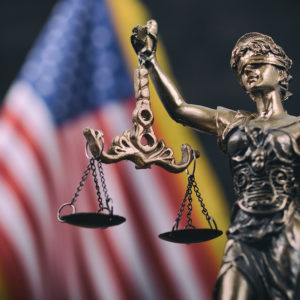Ask Kristine Huskey about the work she does at the Veterans’ Advocacy Law Clinic in Arizona, and she’ll tell you a story about Iraq.
“We were helping a guy who deployed twice to Iraq, he was awarded the Purple Heart. He saw some really nasty stuff, like so many did, and he came back with PTSD [Post Traumatic Stress Disorder],” Huskey told InsideSources.
“Like a lot of people in the military, he was reluctant to tell anyone about his issues, and instead, he began self-medicating.”
That led to his less-than-honorable discharge which, in turn, meant he no longer qualified for the treatment he needed for his addiction. “You can’t even go to the VA for therapy,” Huskey said.
So, she and her team of University of Arizona law students took the case pro bono. Thanks to the clinic’s resources, Huskey and her law students were able to travel to Washington, D.C., to advocate for the struggling veteran.
“Our client got to testify, the students made the arguments, and we got him upgraded to an honorable discharge.”
And thanks to that change in his discharge status, “He was able to get the help he needed, then he accessed the G.I. bill, and now he’s a paramedic who is doing amazing things. All because we were able to take his case and get him the discharge he was entitled to,” Huskey said.
That’s one of the many stories from America’s network of veterans legal clinics — based at law schools, manned by students and faculty, and funded by organizations and groups who support America’s veterans.
One of those organizations, Philip Morris International (PMI), just announced an award to three veterans law clinics, including the University of Arizona, as part of a $3 million grant to support the veterans community nationwide.
“As a company, we are throwing our weight behind serving the men and women who have raised their hands to serve in our armed forces, some of whom require additional support as they reintegrate into civilian life. This is a cause that resonates strongly among our employees,” said PMI’s Marian Salzman, Senior Vice President & Chief Corporate Citizenship Officer. “They are eager to make a difference in the lives of those who have sacrificed in support of our nation, its values, and its allies.”
The funding will underwrite Huskey’s clinic, as well as the Rocky Mountain Veterans Advocacy Project in Aurora, Colo. and the Veterans and Servicemembers Legal Clinic at the University of Florida in Gainesville.
PMI’s actions are an expansion of a wider veterans’ support strategy laid out in their newly published white paper, “Serving Those Who Served.” One of the veterans featured in that paper is David A. [last name withheld] of Kentucky, who told his story:
“I was at home one day… in the kitchen by myself just standing there. Mind you, this is ten years after the Marine Corps. It hadn’t taken me long to realize I didn’t fit in with society,” David said. “I felt like a tiger out of its cage –that’s how I used to describe it to some people at the VA.
“I just started crying on my kitchen island… I was just crying and overwhelmed with emotion — fear, depression, whatever you want to call it. I got smacked in the face with all of it.”
When a veteran like David realizes he needs help but runs into an obstacle, that’s when veterans legal clinics step up, said Judy Clausen, director of the University of Florida program.
“We have a lot of clients with toxic exposures. We’ve had a lot who were exposed to Agent Orange, or to burn pits. And a lot of times, when they reach out to us, we’re their very last appeal,” Clausen said.
The law students and their faculty advisors provide the legal firepower, but the funding from supporters like PMI makes it possible to do things like hire expert witnesses or arrange for travel — resources many of these veterans wouldn’t be able to afford. Having the right evidence and legal strategy can help veterans who’ve fallen through the cracks of the VA system get the help they need — and that they’ve earned, Clausen said.
It’s also making a major impact on the lives of the law students themselves.
“You know, very few people serve now,” noted Clausen. “Through our clinic work, they get to really know about the sacrifices of their own generation, what military service is like. We have these great clients and their stories are so powerful.”
In Clausen’s case, “most of the [law students] who leave the clinic say they’re committed to continuing to do pro bono work for veterans, and I’ve had several join the JAG [Judge Advocate General] Corps, to become military lawyers.”
Huskey has a similar experience.
“Our clinic’s services are like a win-win because not only are we helping veterans at no cost to them, but we are training the new generation of lawyers on veterans issues. Every year, at least one of my students goes into the area of veterans law.”
But for the wins to continue, the funding must continue as well. PMI’s Salzman says the latest round of contributions is “part of a broader veterans support effort” and she “anticipates additional grants as we expand our U.S. footprint.”
That’s good news, says Huskey.
“Every dollar we receive helps us reach more veterans and remove legal barriers that hinder the transition from military service to civilian life.”

